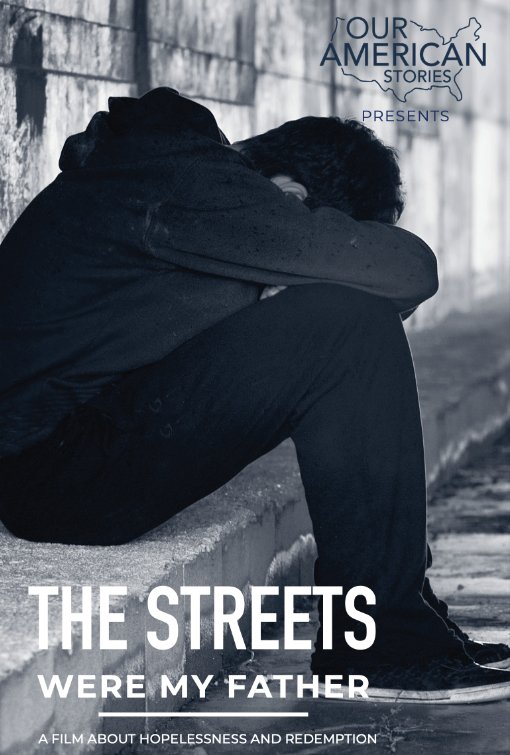“Come to the Father Through Jesus the Son”

| None | Light | Moderate | Heavy | |
|---|---|---|---|---|
| Language | ||||
| Violence | ||||
| Sex | ||||
| Nudity |
What You Need To Know:
THE STREETS WERE MY FATHER is simply but beautifully structured. It consists of three men giving their Christian testimonies, punctuated by personal photographs, street scenes, men and guns, jails and prisons, men in church, and men reading Bibles, etc. The stories they tell are soul-stirring, riveting and pierced with tears of joy. They’re filled with biblical, moral values. The Gospel of Jesus Christ comes alive in THE STREETS WERE MY FATHER. It is a must-see documentary.
Content:
Very strong, evangelistic Christian, biblical worldview about three men sent to prison who describe in extremely powerful, riveting terms how they lost their fathers or were abandoned by their father, turned to crime and violence, and wound up in jail or prison, but found God and Jesus in miraculous, soul-stirring, emotionally powerful ways, with many positive allusions and implied and explicit references to Scripture and the Word of God and to redemption, salvation, baptism, many interventions by God, forgiveness, sanctification, marriage, and family, with many images of church, people in church, men kneeling in church, men in choir outfits, crosses, and crucifixes, plus the movie stresses the importance of living a changed life as a Christian, so there’s no cheap grace here
No foul language
Some verbal references to fighting, stealing, armed robbery, stabbings, beatings, domestic abuse, violent revenge, murder, and thoughts of suicide, but rebuked, plus some images of men with guns and men with masks while men talk about armed robbery and engaging in gang violence
No sex, but man mentions his mother having relations with several men after father died or left
No nudity
Level of alcohol use and abuse (drunkenness, alcoholism rebuked/redeemed or not rebuked/redeemed)
No smoking but some verbal references to smoking marijuana and selling and using crack and cocaine, but rebuked and overcome through Jesus and His Gospel of Salvation; and,
Some references to past armed robberies and other gang activities, but all rebuked and overcome through Jesus and His Gospel.
More Detail:
The movie opens with a man named Carlos Colon starting to tell his story of what happened to his father. Carlos and two other men, Louis Dooley, Jr., and Leslie Williams, report how they all turned to a life of gang crime and violence. Left without a father, Carlos says, “The streets were my father.” Eventually, all three men land in local jails and prisons. Louis, for example, was sentenced to life in prison plus 100 years. Miraculously, however, they all encounter Christians, who witness to them about Jesus and start them on the road to redemption, including salvation and sanctification as well as peace, joy, service, and fulfillment, in Christ.
THE STREETS WERE MY FATHER is simply but beautifully structured. It consists simply of three men giving their Christian testimonies of sin and salvation, punctuated by images of personal photographs, street scenes, men and guns, jails and prisons, then men in church and men reading Bibles, etc. The stories they tell are all soul-stirring, totally riveting and pierced with tears of joy. The stories are also filled with biblical, moral values. All three men have amazing experiences where they’re just about to engage in prison violence for one reason or another but are miraculously stopped from carrying out such plans. One of the movie’s many highlights is a remorseful Carlos receiving forgiveness from the father of the man he murdered.
The Gospel of Jesus Christ comes alive in THE STREETS WERE MY FATHER. It is a must-see documentary.
As the movie points out before the end credits, a significant majority of prisoners, school dropouts and males with behavioral problems are fatherless men. Also, 92% of the Americans in jail or prison are men, and 700,000 prisoners are released each year. The documentary is dedicated to Chuck Colson, the founder of Prison Fellowship, and Manny Mills, the founder of Koinonia House in Wheaton, Ill., a post-prison ministry helping local churches help Christians coming out of prison.


 - Content:
- Content: 

